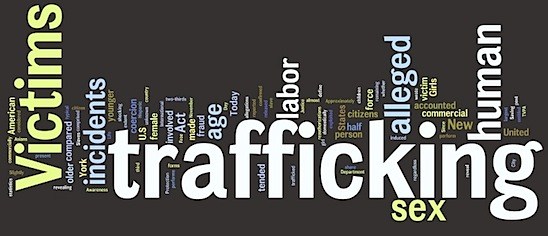On 31 October I’ll be participating in the Battle of Ideas, an annual event in London. The panel is called Trafficking: new slave trade or moral panic? and takes place from 1345 till 1515 at the Student Union Provocation Zone at the Royal College of Art, Kensington Gore, London. Tickets required. Panelists speak for only a few minutes each at the outset, and the discussion opens up to the public quickly. Also on the panel: Julie Bindel.
This is the description from the website:
Human trafficking has been labelled a ‘modern-day slave trade’ and is seen as one of the most pressing human rights issues today: 117 countries have signed the UN Protocol to Prevent, Suppress and Punish Trafficking. The International Labor Organization has concluded that trafficking is a multibillion dollar industry, with millions of people being transported within and across borders through coercive and violent means. Yet there is little hard evidence out there. The trafficking and prostitution bonanza predicted to take place in South Africa during the World Cup this year simply failed to materialise. Meanwhile, Operation Pentameter Two, the UK’s largest ever crackdown on trafficking, failed to find a single person who had forced anybody into prostitution, despite hundreds of raids on sex workers over a period of six months. Campaigners say this is because trafficking is a hidden crime, with victims working in the shadow economy and scared to approach the authorities. Critics say it’s because trafficking is a misleading label, which, in actual fact, refers to diverse forms of migration and employment.
Campaigners for freedom of movement argue the best way to help migrants avoid taking clandestine and dangerous routes across the world is to ease up stringent migration laws. Anti-trafficking campaigners counter that whereas trafficked persons were often dismissed as illegal migrants in the past, now they have recourse to new claims in the asylum process. Critics believe ‘rescuers’ dehumanise migrants, compelling them to present themselves as victims lacking agency. A majority of anti-trafficking campaigns focus on rescuing people working in the sex industry, leading sex workers’ rights activists to claim trafficking has become a powerful, emotive tool for prostitution abolitionists to win wider support for their clampdowns on the sex industry as a whole.
When it comes to trafficking, how important are definitions and statistics – shouldn’t the focus be on ending abuse, wherever it occurs? Do anti-trafficking campaigns combat migrant exploitation or do they aid crackdowns on free movement? Is the trafficking industry even real, or is it a moral panic?


I hope they post results of the discussion in video or text form. I would love to see how it goes.
Despite the organized and intensified campaign against trafficking, I still see the public (especially the younger generation) as being increasingly sympathetic to legalizing prostitution. You see it in the comments on youtube, on social networking sites, and in the comments in news outlets. And, I think women, with their increasing independence, are ultimately going to be the force that turns the tide.
Of course, the mass media thrives on sensationalism, so they have an incentive to perpetuate and encourage the fear mongering.
Disclaimer: I admit that I see almost all so-called anti-trafficking activism as actually targeting sex work (especially prostitution). I’m very simple minded in that regard. To my way of thinking, if they were really targeting trafficking in a broader sense, they would be talking much more about illegal immigration and the manual/agricultural labor market. To the extent that they do discuss trafficking in general, I think it’s only part of the disguise for their central mission.
Pingback: Twitter Trackbacks for Battle of Ideas | London | Trafficking debate | Laura Agustín | Border Thinking on Migration, Trafficking and Commercial Sex [lauraagustin.com] on Topsy.com
I agree with Dave, I’d love to see a transcript from this. I’d also love to have something like this in Ireland. Any chance of you paying us a visit, Laura? There’s a growing lobby for the Swedish law here and virtually nobody pointing out what’s wrong with it.